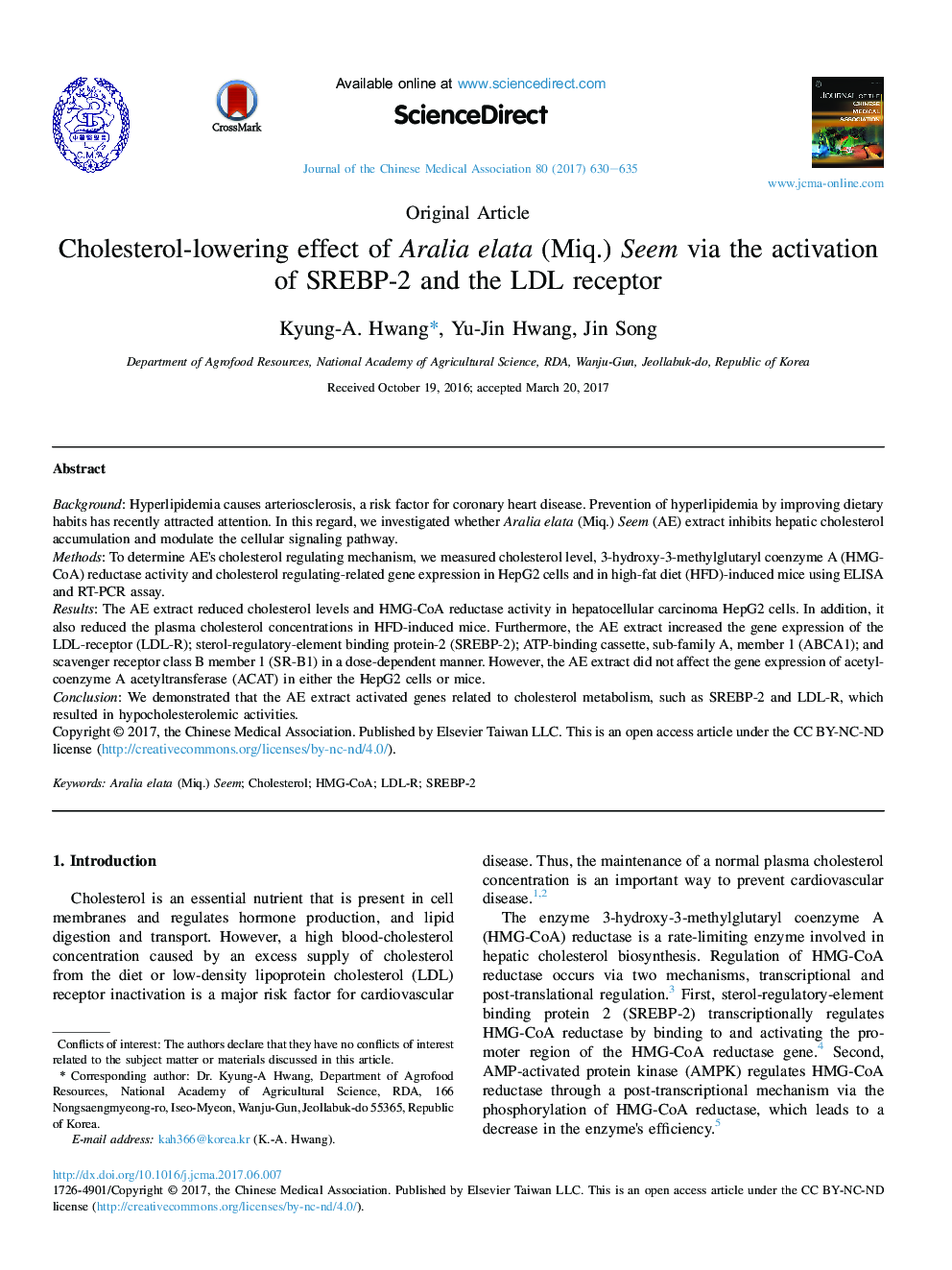| Article ID | Journal | Published Year | Pages | File Type |
|---|---|---|---|---|
| 5679620 | Journal of the Chinese Medical Association | 2017 | 6 Pages |
BackgroundHyperlipidemia causes arteriosclerosis, a risk factor for coronary heart disease. Prevention of hyperlipidemia by improving dietary habits has recently attracted attention. In this regard, we investigated whether Aralia elata (Miq.) Seem (AE) extract inhibits hepatic cholesterol accumulation and modulate the cellular signaling pathway.MethodsTo determine AE's cholesterol regulating mechanism, we measured cholesterol level, 3-hydroxy-3-methylglutaryl coenzyme A (HMG-CoA) reductase activity and cholesterol regulating-related gene expression in HepG2 cells and in high-fat diet (HFD)-induced mice using ELISA and RT-PCR assay.ResultsThe AE extract reduced cholesterol levels and HMG-CoA reductase activity in hepatocellular carcinoma HepG2 cells. In addition, it also reduced the plasma cholesterol concentrations in HFD-induced mice. Furthermore, the AE extract increased the gene expression of the LDL-receptor (LDL-R); sterol-regulatory-element binding protein-2 (SREBP-2); ATP-binding cassette, sub-family A, member 1 (ABCA1); and scavenger receptor class B member 1 (SR-B1) in a dose-dependent manner. However, the AE extract did not affect the gene expression of acetyl-coenzyme A acetyltransferase (ACAT) in either the HepG2 cells or mice.ConclusionWe demonstrated that the AE extract activated genes related to cholesterol metabolism, such as SREBP-2 and LDL-R, which resulted in hypocholesterolemic activities.
